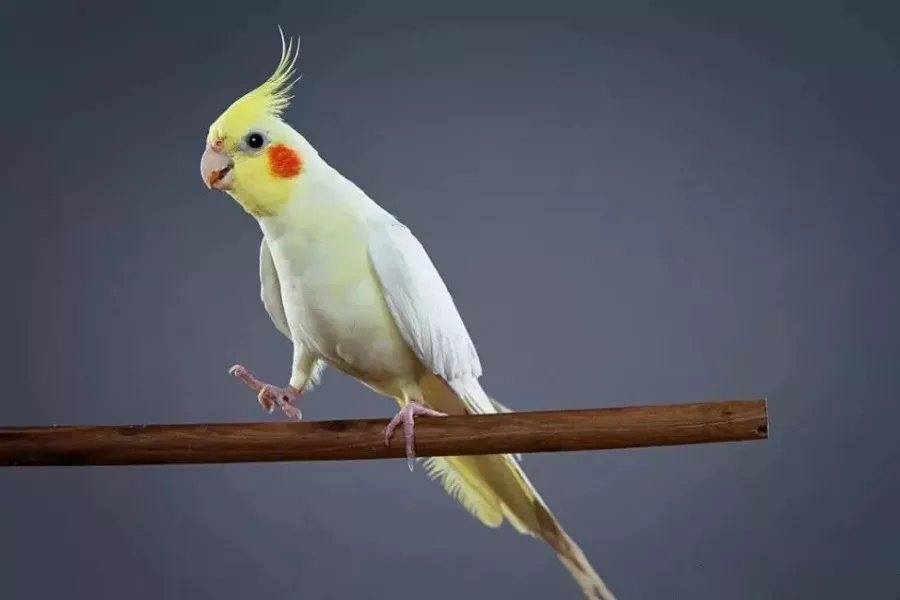- Cockatiels are a beloved pet bird species that originate from Australia. With their distinctive crest and melodic chirping, these birds have captured the hearts of many bird lovers. One common question among prospective cockatiel owners is how long do cockatiels live? In this article, we will explore the lifespan of cockatiels and factors that can affect their life expectancy.
Average Lifespan of Cockatiels:
Cockatiels are known for their longevity compared to many other bird species. On average, a well-cared-for cockatiel can live between 15 to 20 years, with some individuals even reaching their 20s or 30s. The lifespan of a cockatiel can be influenced by various factors, both genetic and environmental.
Genetics and Breed:
Genetics play a significant role in determining a cockatiel’s lifespan. The bird’s breed, lineage, and individual genetic makeup can influence its overall health and longevity. It is advisable to obtain a cockatiel from a reputable breeder who prioritizes healthy breeding practices to increase the chances of having a long-lived pet.
Diet and Nutrition:
Proper nutrition is vital for a cockatiel’s well-being and lifespan. A well-balanced diet should consist of high-quality commercial pelleted food as the primary component. Supplement this with fresh fruits, vegetables, and occasional protein sources such as cooked eggs or lean meats. Avoid feeding your cockatiel foods high in sugar, salt, or unhealthy fats. Additionally, ensure access to clean, fresh water at all times.
Veterinary Care and Health Monitoring:
Regular veterinary check-ups are essential for maintaining a cockatiel’s health. Avian veterinarians can conduct thorough examinations, provide necessary vaccinations, and detect any potential health issues early on. Annual or bi-annual visits to the veterinarian are recommended, but seek immediate medical attention if you notice any signs of illness or abnormal behavior in your cockatiel.
Environmental Factors:
A conducive living environment significantly impacts a cockatiel’s lifespan. Provide a spacious cage that allows for movement and wing stretching. The cage should be located in a well-ventilated area away from drafts, direct sunlight, and harmful fumes. Cockatiels thrive in temperatures ranging from 65 to 80 degrees Fahrenheit (18 to 27 degrees Celsius). Ensuring proper lighting, including exposure to natural sunlight or full-spectrum lighting, is also beneficial.
Mental Stimulation and Social Interaction:
Cockatiels are highly intelligent and social birds that require mental stimulation and social interaction to thrive. Provide plenty of toys, perches, and activities to keep them engaged. Spend quality time with your cockatiel daily, offering companionship, interaction, and training sessions. Cockatiels can become stressed or bored when left alone for extended periods, which may affect their overall health and lifespan.
Emotional Well-being:
Cockatiels are sensitive creatures that thrive on love and attention. Treat your cockatiel with kindness, patience, and positive reinforcement. Avoid harsh training methods or stressful situations that may negatively impact their emotional well-being. Creating a nurturing and loving environment fosters a sense of security, leading to a healthier and happier life.
FAQs About the Lifespan of Cockatiels:
Q1. What should I feed my cockatiel to promote a longer life?
A balanced diet for a cockatiel includes a high-quality pelleted food as a base, supplemented with fresh vegetables, fruits, and occasional treats like seeds or nuts. Avoid feeding them foods that are toxic to birds, such as chocolate, avocado, onions, and caffeine.
Q2. How can I tell if my cockatiel is aging?
As cockatiels age, you might notice changes in their behavior and physical appearance. They might become less active, their feathers might lose some vibrancy, and they could develop age-related health issues. Regular observations and interactions with your bird can help you spot these changes.
Q3. Can cockatiels become stressed as they age?
Yes, cockatiels can experience stress as they age, just like any other living being. Changes in routine, environment, or the absence of companionship can lead to stress. Minimizing sudden changes and providing a consistent and comfortable environment can help reduce stress.
Q4. Are there any common health problems associated with older cockatiels?
Older cockatiels can be prone to health issues such as arthritis, cataracts, respiratory problems, and tumors. Regular vet visits can help catch these issues early, improving the chances of effective treatment.
Q5. Can providing companionship help extend a cockatiel’s lifespan?
Yes, cockatiels are social creatures and benefit from companionship, whether from other cockatiels or from regular interaction with their human caregivers. However, introducing a new bird companion should be done carefully to avoid conflicts.
Q6. At what age is a cockatiel considered a senior?
Cockatiels are generally considered senior birds around 10 years of age. This is a rough estimate, as individual birds can age differently based on genetics and care.
Conclusion:
In conclusion, the lifespan of a cockatiel can range from 15 to 20 years in captivity, depending on various factors such as genetics, environment, diet, and medical care. To ensure a long and healthy life for your cockatiel, provide them with a stress-free environment, a balanced diet, and regular veterinary care. With proper care and attention, your cockatiel can be a loyal and loving companion for many years to come.
Related topics:
Cockatiel Lifespan: How Long Do Cockatiels Live?
295
previous post


 Facebook
Facebook  Instagram
Instagram  Youtube
Youtube 